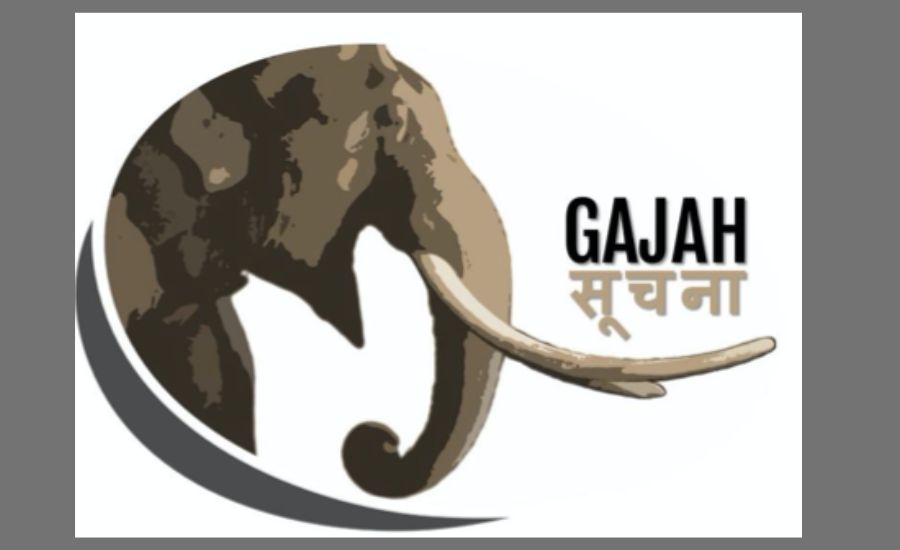The Asian elephant, an endangered species with deep cultural significance across Asia, faces increasing threats in the wild and captivity. In India, where elephants have been tamed for centuries, these majestic animals are often used for religious ceremonies, wildlife tourism, and forestry activities. However, the illegal trade of live elephants and their body parts, especially tusks, continues to undermine conservation efforts. To tackle this issue, the Indian government, in collaboration with the Wildlife Institute of India (WII), has introduced a game-changing solution: the Gajah Suchana app. This digital platform is designed to curb illegal wildlife practices and manage the population of captive elephants through DNA profiling and comprehensive data collection.
The Threats Facing Captive Elephants
India is home to around 2,454 captive elephants, according to a 2019 government affidavit submitted to the Supreme Court. Out of these, about 660 elephants lacked valid ownership certificates, which raises serious concerns about their legal status and the potential for illegal trade. States like Kerala and Assam, which account for over half of the country’s captive elephant population, are particularly affected by this issue. Additionally, captive elephants are at constant risk of being exploited for their tusks, with many cases of ivory being sold on the black market.
Senior IFS officer Ramesh Pandey, speaking to Indian Masterminds, explained how the illegal trade of elephant tusks persists: “In many cases, it has been found that the tusks of captive elephants were sawed from the edge and sold off. Even if the illegal ivory products are seized by the authorities, they have no means to identify the elephant from which these tusks have been taken.”
This is where the Gajah Suchana app comes in, offering a way to scientifically manage the captive elephant population while preventing illegal activities.
How the Gajah Suchana App Works
The Gajah Suchana app aims to create a comprehensive DNA database for every captive elephant in India. This database will help authorities track elephants, verify ownership, and prevent illegal trafficking. The app allows users, such as forest officials and elephant handlers, to log detailed information about each elephant, including their name, gender, age, microchip ID, and physical characteristics like height and weight. Additionally, tamper-proof DNA sample collection kits developed by the WII ensure the integrity of genetic data.
Virendra Tiwari, an Indian Forest Officer, shared an update on the progress of the initiative: “Till now, around 1,000 captive elephants’ DNA data is on the app.”
The app’s user-friendly interface requires users to log in with unique Kit IDs, provided by the WII, for each elephant. Once logged in, they can input information under five sections, ranging from the elephant’s location to mahout (elephant handler) details. All data is securely stored in a central database and synced with the genetic data later.
Why DNA Profiling Is Critical
DNA profiling is a powerful tool that provides each elephant with a unique genetic identity, similar to a human fingerprint. This profile cannot be altered or tampered with, making it a reliable method for preventing illegal trade and ensuring that captive elephants are not mixed with wild ones. As Ramesh Pandey highlighted, “After the amendment in laws related to transport and transfer of captive elephants in 2024, if any captive elephant is transferred, DNA profiling is done. This helps in preventing the mixing of wild elephants with captive elephants.”
The genetic data collected through the app will also allow authorities to create ownership certificates for each elephant, further strengthening legal protections. If illegal ivory is seized in the future, DNA profiling will enable officials to trace the ivory back to a specific elephant, closing a significant gap in wildlife crime prevention.
A Digital Future for Conservation
The Gajah Suchana app is a monumental step forward in the conservation of India’s captive elephants. With the data collected, the government can not only monitor the health and well-being of these animals but also take swift action against illegal activities. The initiative is still in its early stages, but the potential for long-term impact is clear.
As more elephants are added to the app’s database, India moves closer to ensuring that these gentle giants are protected from harm, both in the wild and in captivity. The Gajah Suchana app represents a modern solution to an age-old problem, combining technology with conservation to safeguard the future of one of India’s most iconic species.
In conversation with Indian Masterminds IFS officer Mr. Virendra Tiwari, “The app is a crucial step towards managing captive elephants scientifically and curbing illegal wildlife practices.” Through DNA profiling and vigilant data collection, the Gajah Suchana app offers a beacon of hope for India’s endangered elephants.

































